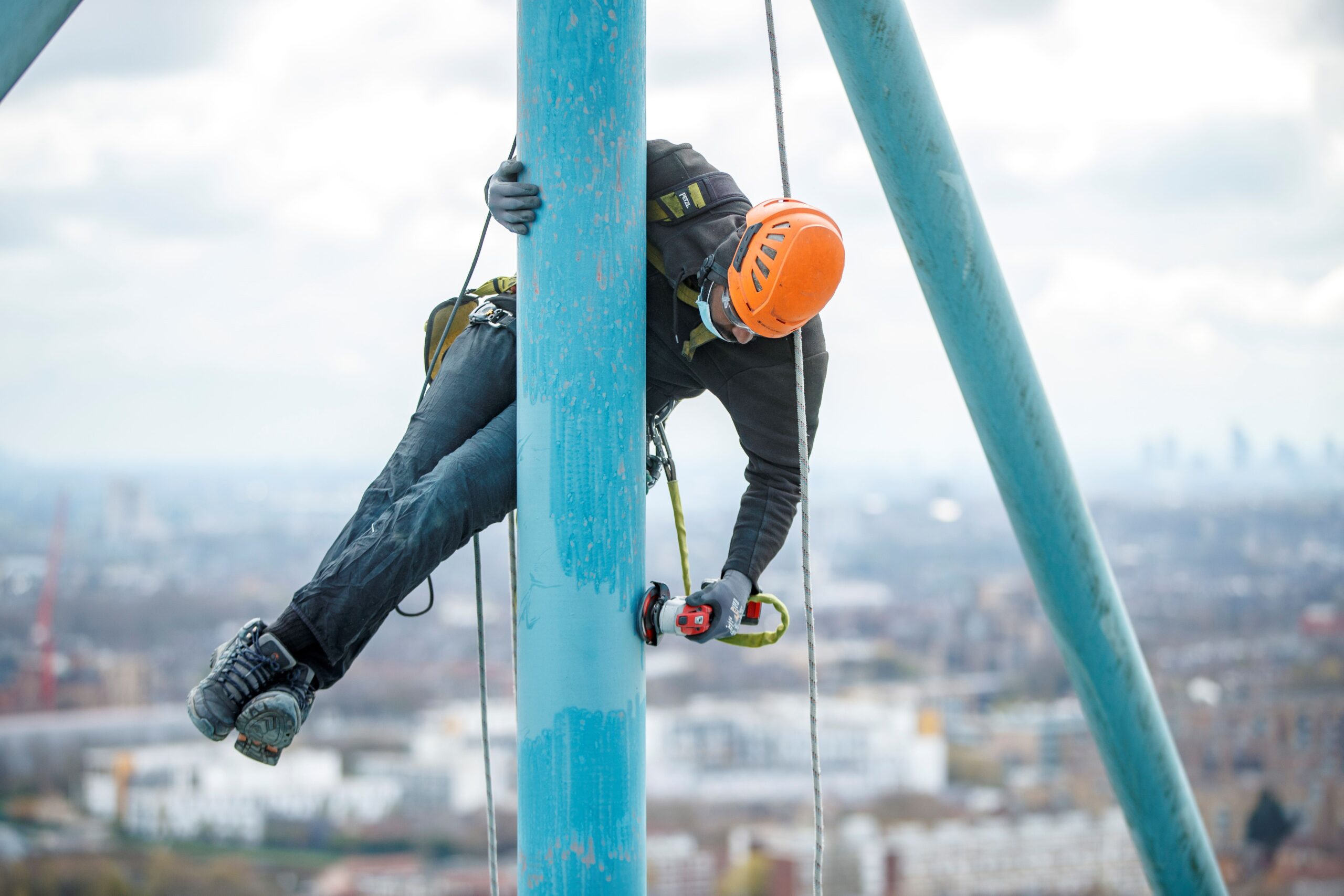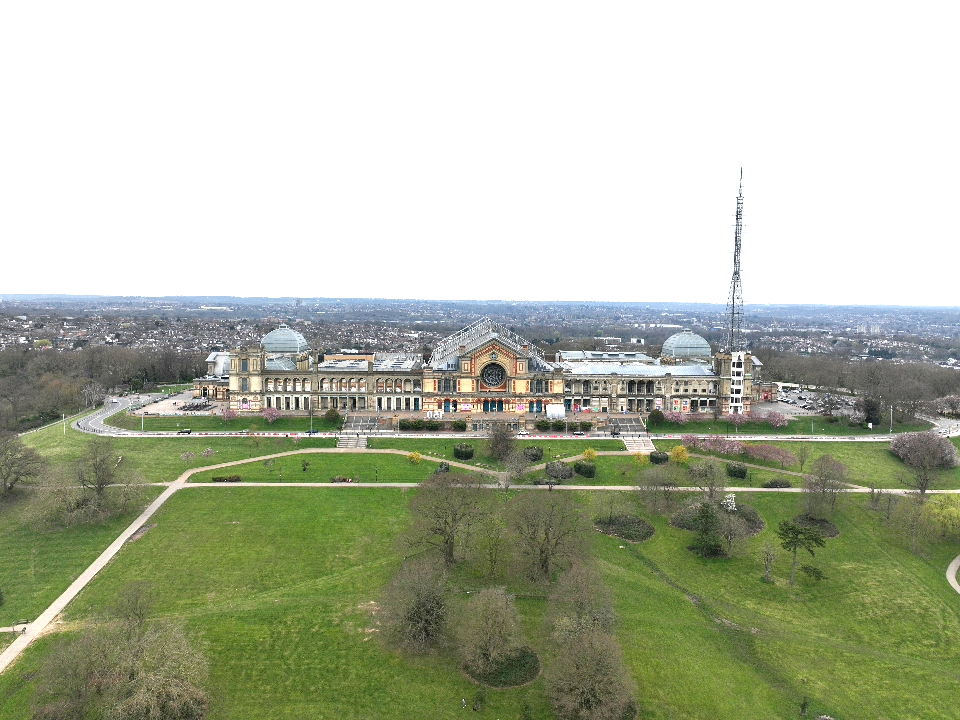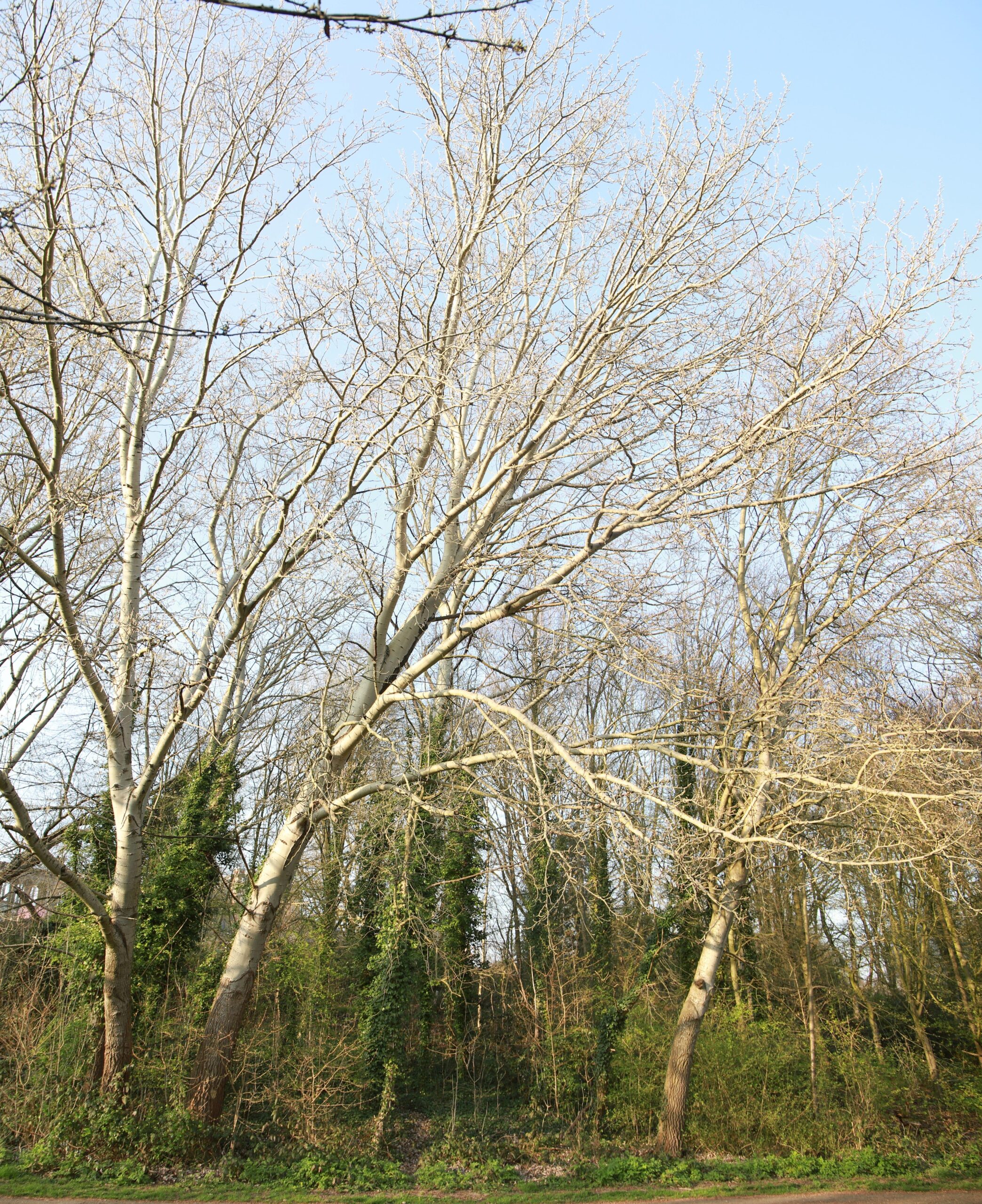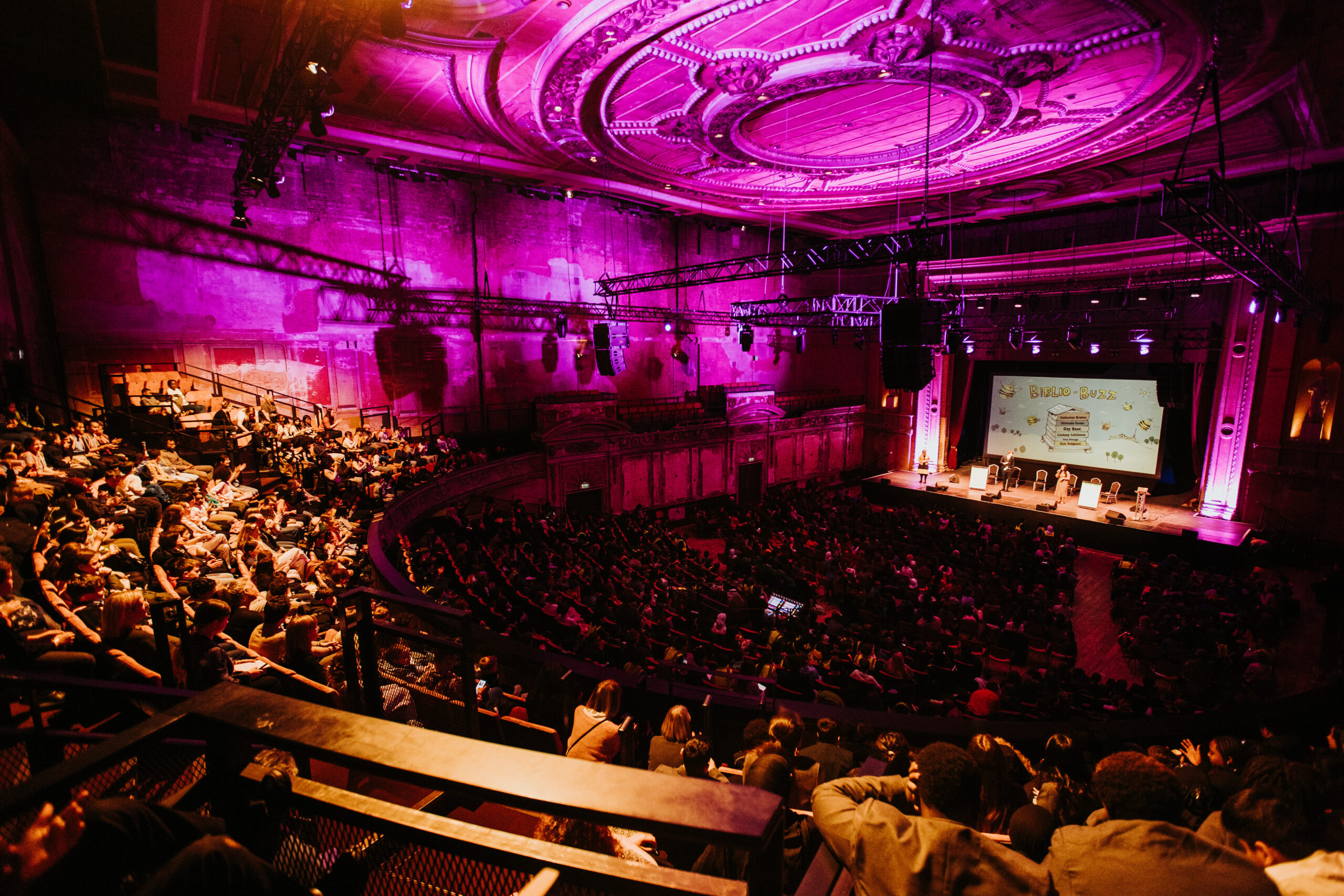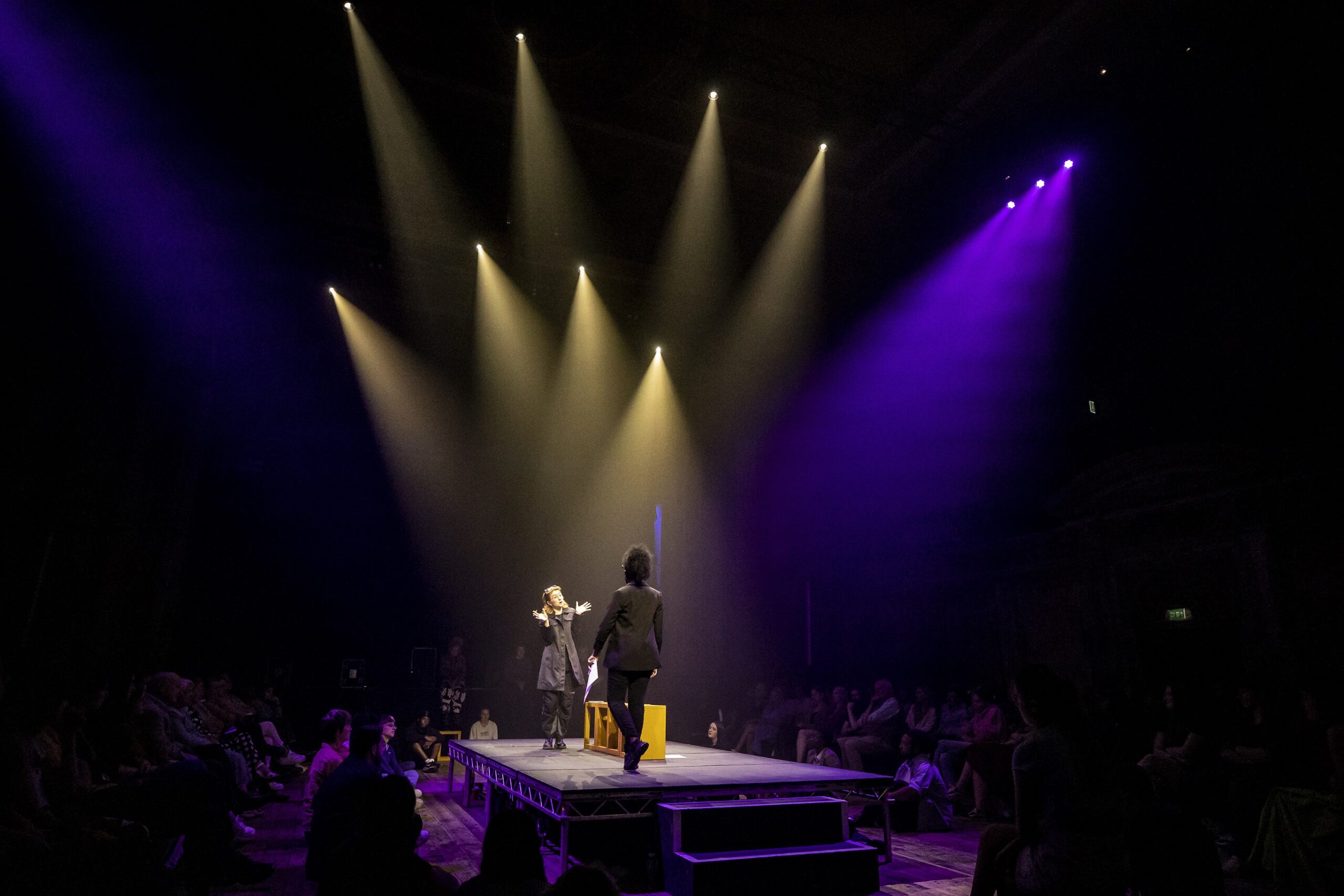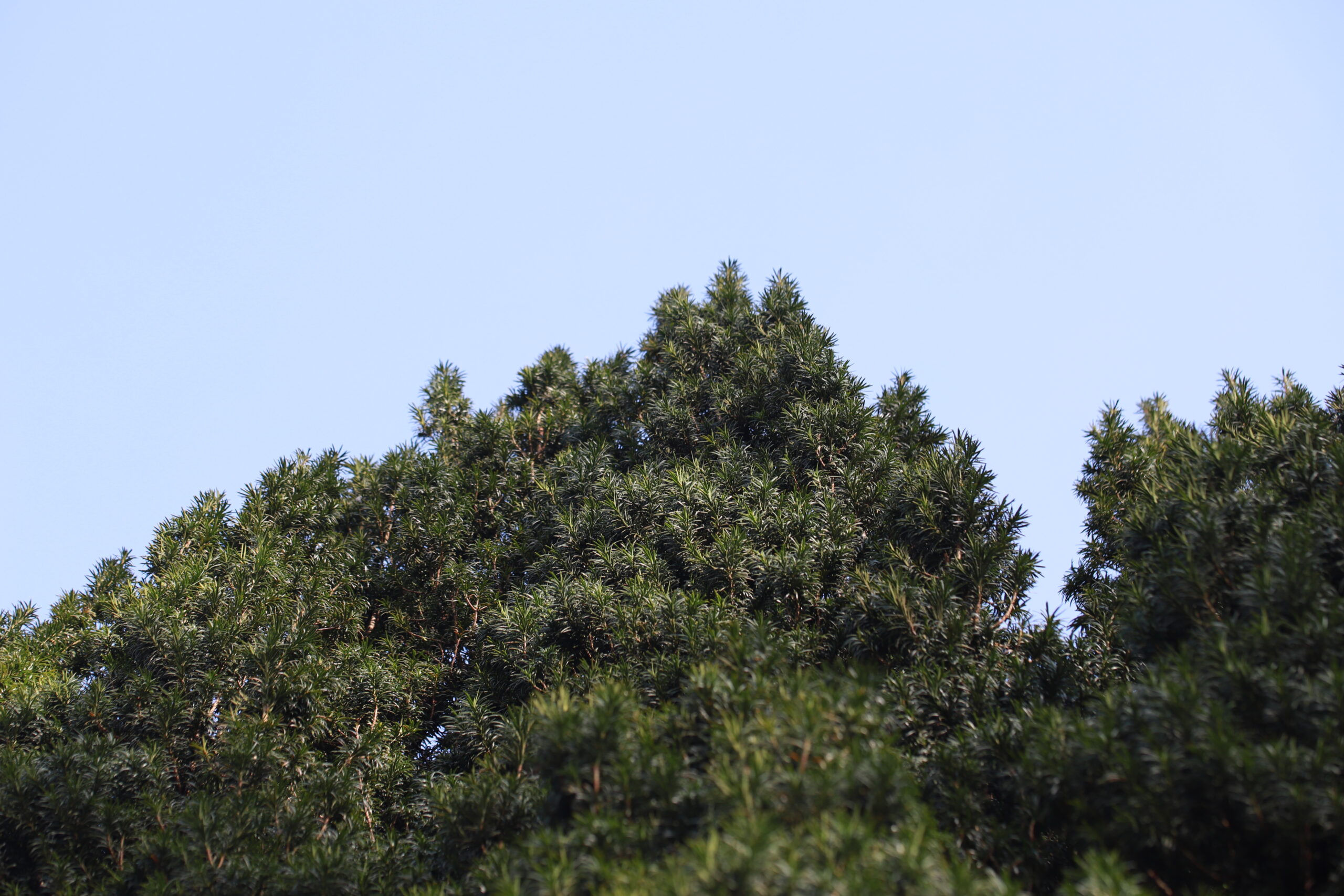This year, 2022, the BBC celebrates its 100th anniversary with a dedicated programme of celebrations and broadcasts. It offers us the chance to further explore the amazing history of the BBC at the Palace. In this blog, to coincide with Women’s History Month, Ally Pally curatorial manager Kirsten Forrest takes a brief look at some of the pioneering women who worked to develop television at ‘AP’.
When I first came across this image from a scrapbook in the Alexandra Palace Television Society (APTS) archive, I found it heartening! As someone who had done “a man’s job” for more than a decade, I knew that the story behind the picture would be one of determination and not letting gender stereotypes hold you back.
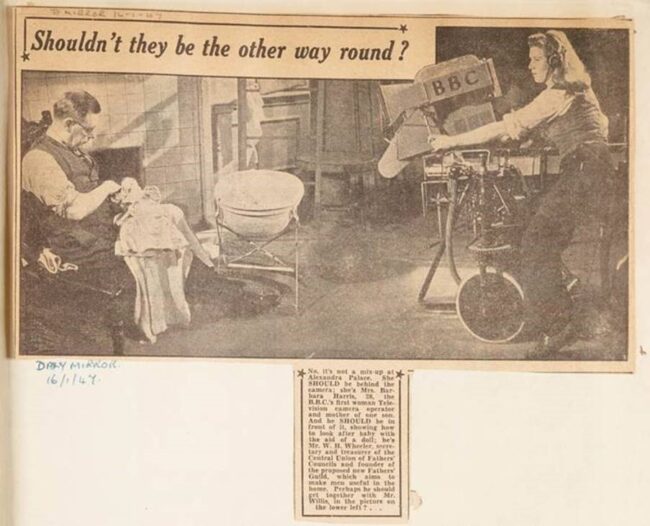
It’s fascinating to hear Barbara ‘Bimbi’ talk with two other female colleagues about the challenges, as well as the fun they had, working in the television studios and production during their time at Alexandra Palace. One of the limiting factors they describe in terms of career progression was the perceived impossibility of “delegating to men”! In fact, from the beginning of the Second World War significant numbers of women were trained in aspects of broadcast engineering by the BBC, going on to work in “recordings”, “transmitters” and “control rooms” – where there was apparently a great deal of dial twiddling required! You can hear an interview with Barbara, as well as exploring a range of other fascinating stories, via the BBC 100 voices series
There are dozens of inspirational and influential women leaping out at me from the pages of early television history, but one I feel real affinity with is Yvonne Littlewood (pictured below). Yvonne joined the corporation in 1944, coming up from Broadcasting House to be a production secretary at Ally Pally after the war. It was a time when opportunities for advancement were significantly fewer for women, yet though her persistence, hard work and skill she became a Production Assistant, then the first female Producer in Light Entertainment, going on to direct the Eurovision Song Contest in 1963. I had the privilege of meeting Yvonne in 2016 after the APTS reunion lunch for former BBC staff at the Palace.
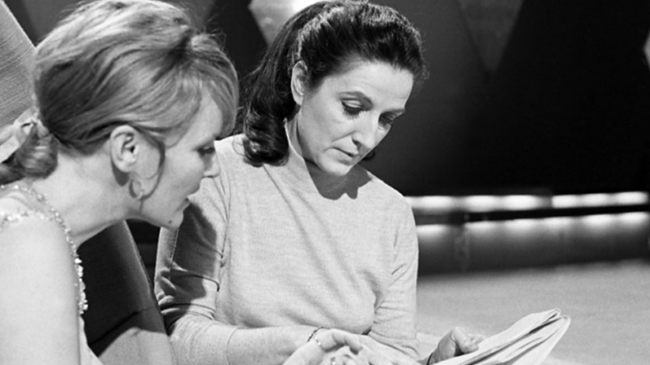
One of my favourite ‘behind the scenes’ personalities from Ally Pally’s television history is pioneering producer, Grace Wyndham Goldie (below) – an early devotee of television who revolutionised the electoral process in 1950 by broadcasting results in real time, as they came in. Controversially, for the first time in British history, the public learned the results at the same time as the politicians: “The privilege of the few had once again been extended to the many.” A hugely influential producer, Grace went on to create the current affairs television format. Her thoughts on witnessing early television broadcast tests in 1936 sum up her spirit and foresight: “the whole thing was terrible, the reception was awful …and I was convinced this was going to become one of the most influential things that had ever been created”.
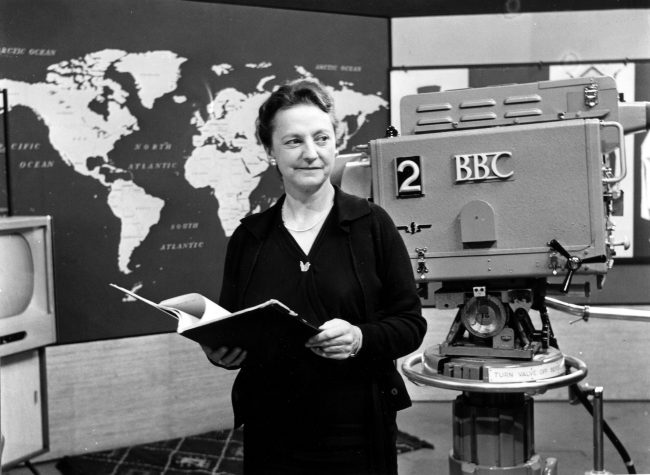
It goes without saying, there were women in front of the camera too, pushing things forwards. Adelaide Hall an American Jazz singer, who was a leading figure in the Harlem Renaissance with a successful career in the US and UK was the first performer to be ‘telerecorded’ in 1947. Adelaide performed on Variety in Sepia, a television special dedicated to black talent, which was the first show recorded for repeat broadcast.
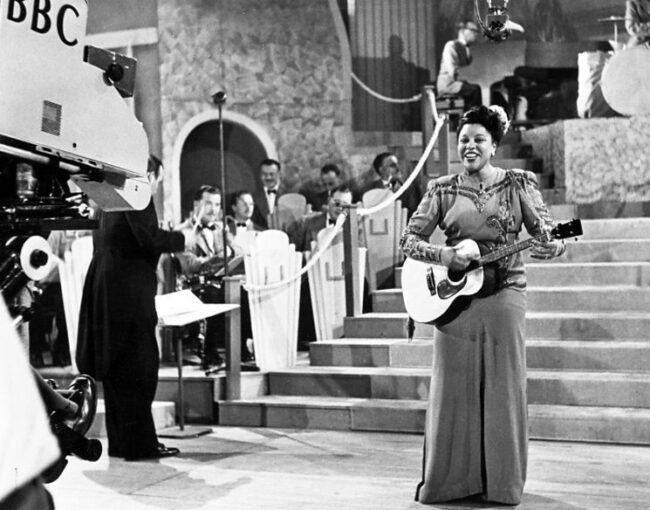
There was also Jasmine Bligh and Elizabeth Cowell the first female presenters of the BBC television service, snapped here “off air” in the Studio, with Joan Miller at the ‘Picture Page’ switchboard.
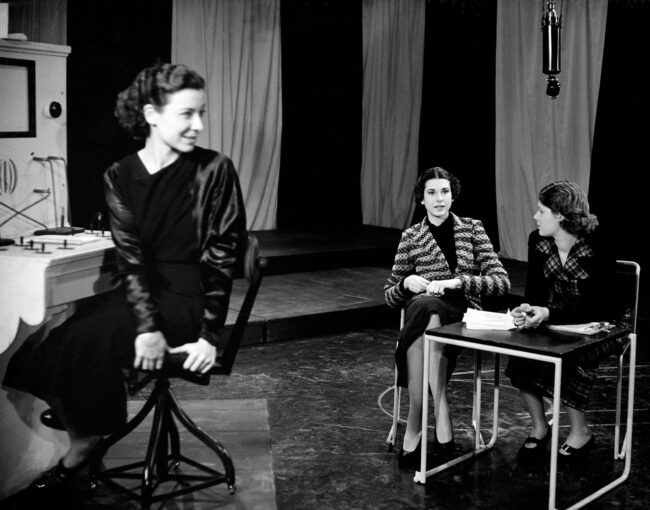
You can delve into amazing stories of the many women who forged their career in a male dominated industry, through the University of Sussex research project Connected Histories of the BBC and 100 Voices That Made the BBC archive project. It also well worth checking out the excellent Pioneering Women in variety and music features and 100 faces series too.
You can also read more about the BBC’s extraordinary time at Alexandra Palace
